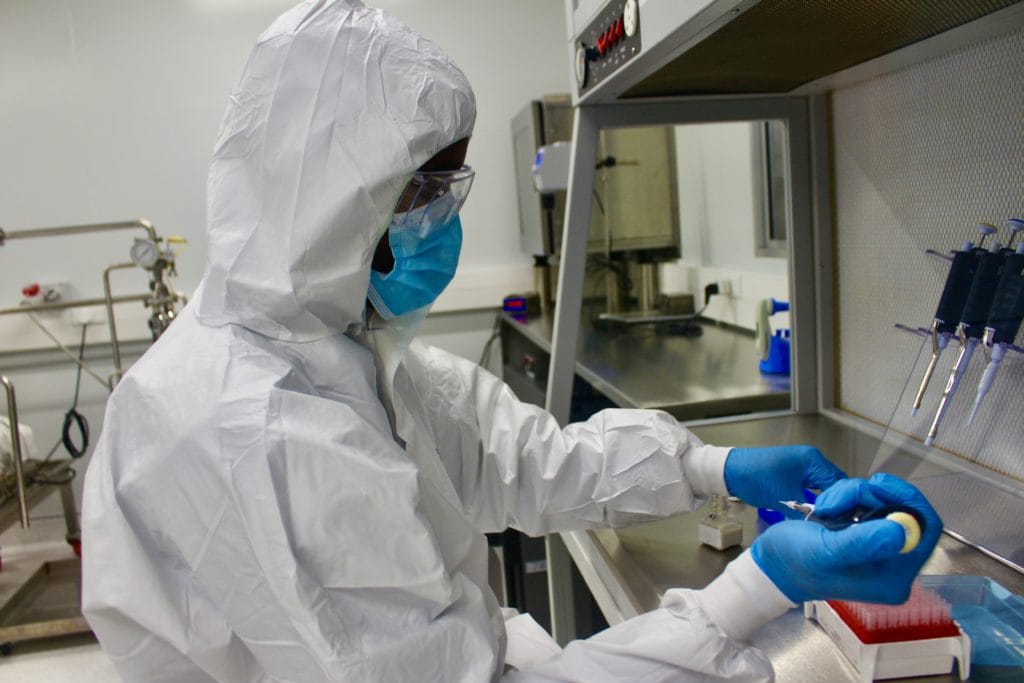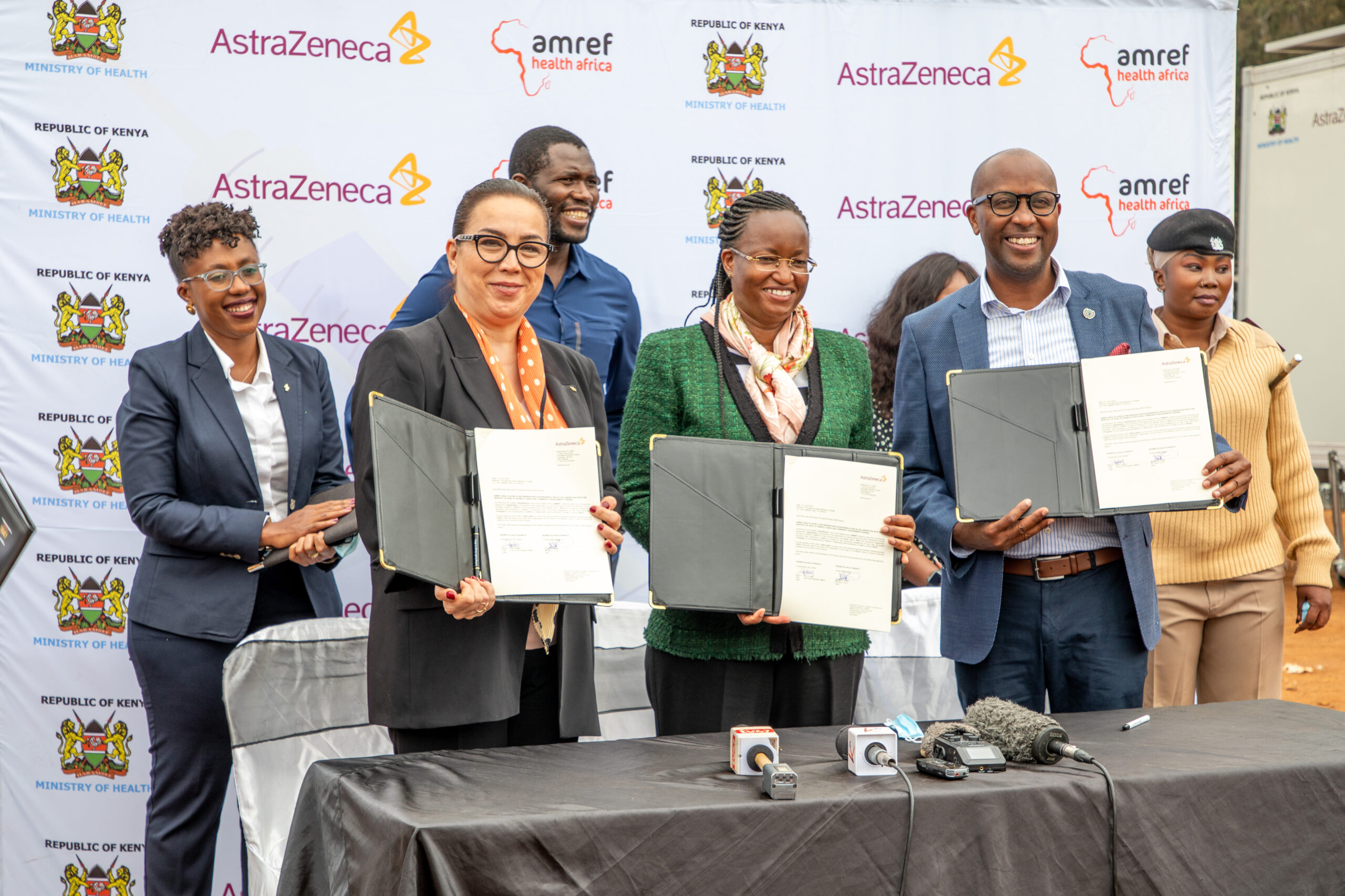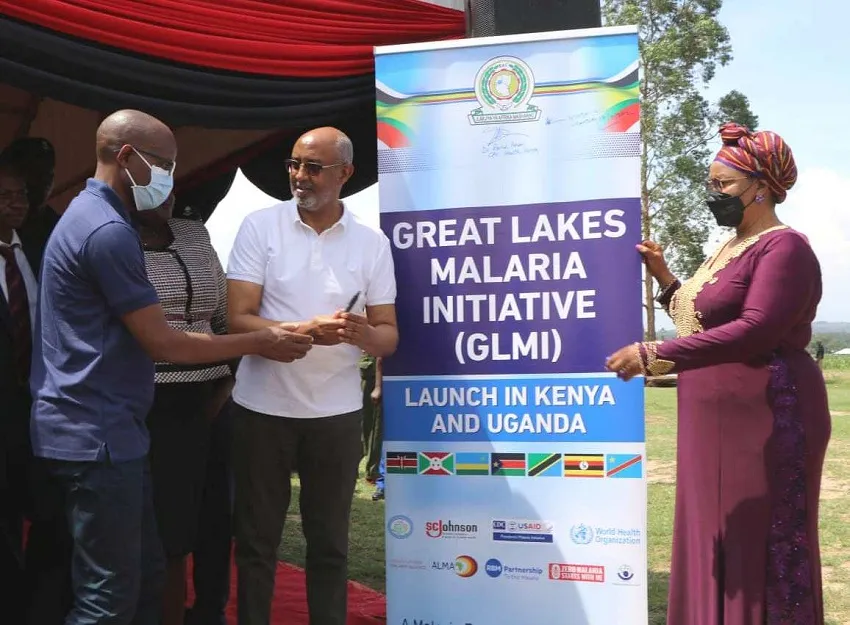Re-engineering the Health Workforce in Sub-Saharan Africa
Thursday, 3 March, 2022


Africa’s attainment of Universal Health Coverage (UHC) largely depends on the availability of a skilled, equipped and adequately supported health workforce. The COVID-19 pandemic, as well as disease outbreaks such as Ebola, have delayed UHC progress and left a strain on the health system. Africa’s socio-economic success post pandemic is anchored in the recovery of its health system, which relies on the health workforce. There is therefore an urgent need to comprehensively resolve the health workforce crisis which continues to plague the African
continent.
HRH is one of the core building blocks of a health system and has two essential components: Human Resources
Development (HRD) and Human Resources Management (HRM). These two components manage the life of a health worker from training to employment and exit from active engagement. The World Health Organisation (WHO) defines Human Resources for Health (HRH) as ‘all people engaged in actions whose primary intent is to enhance health’. The primary role of health workers is to protect and improve the health of their communities. Delivery of health services, whether preventive or curative, targeting individuals or the population, requires skilled, equipped, and adequately supported health workers.
In 2016, the WHO’s High-Level Commission on Health Employment and Economic Growth laid out the link and opportunities between economic growth and investment in the health workforce. The health sector (aggregate size of over US$5.8 trillion per year globally) is a key economic sector and a job generator. The aggregate size of the world’s health sector is over US$ 5.8 trillion per year. With the increased life expectancy, demand for health services will continue to increase, creating millions of new jobs, and it is estimated that a quarter of economic growth between 2000 and 2011 in low- and middle-income countries is estimated to result from the value of improvements to health, with an estimated return on investment in health at 9 to 1.1
The African Union Commission on COVID-19 under the guidance and Chairmanship of His Excellency, President Cyril Ramaphosa, is doubling down on efforts to ensure an effective and sustainable approach to tackling emerging public health threats. The New Public Health Order forms the foundation for these efforts and it highlights the critical role of human resources for health. The New Public Health Order calls for continental cooperation to improve African vaccine, diagnostic, and therapeutic manufacturing capacity; strengthen public health institutions for people-centred care; expand the public health workforce; form respectful, action oriented partnerships; and engage with the private sector. These pillars are part of the continent’s strategy for achieving Agenda 2063 – the Africa We Want. The commission has upgraded the Africa CDC to a continental public health agency, plans to organize the Africa Health Workforce Task Team, and plans to establish the Africa Epidemic Fund to put the New Public Health Order’s proposals into practice.
The Current Situation
Health workers are a crucial pillar in a well-functioning health system, yet they have been historically deprioritized in discussions pertaining to improving the health system. The world is suffering from a massive gap of more than 3.5 million health workers. This includes a pressing need for at least one million community health workers and 350,000 midwives. Millions more existing health workers lack the necessary support, equipment and training they need to deliver on their mandate.
Despite having 25% of the world’s illness burden, WHO estimates that Sub-Saharan Africa has only 1.3 per cent of the world’s trained health personnel. Africa had an average of 1.30 health workers per 1000 people in 2015, significantly less than the 4.5 needed to meet the Sustainable Development Goals (SDGs). Though gains have been made, Africa has the most severe health personnel shortfall, predicted to reach 6.1 million by 2030, out of the anticipated global health staff need of 14.5 million required for UHC and SDGs.
The availability of health workers in Africa is considerably worse compared with other regions of the world, a situation characterised by health care worker shortage and distribution between urban and rural areas in such settings. Experiences of long queues of patients waiting to see a doctor or nurse at a hospital/health centre clearly speak of shortage. This is against the backdrop of a vision to ensure that by 2030, all communities have universal access to health workers. The shortage in many countries could be attributed to limited HRH production capacity because of poor planning and underinvestment in health education and training institutions. These are coupled with unsatisfactory working conditions, poor remuneration and career opportunities, and other labour market pressures.
Additionally, demographic, and epidemiological transitions drive changes in population-based health threats to which the workforce must respond. Pandemics and epidemics impose huge work burdens, risks, and threats. In many countries, health sector reform under structural adjustment capped public sector employment and limited investment in health worker education, thus frustrating the supply of young graduates. Expanding labour markets have intensified professional concentration in urban areas and accelerated international migration from Africa to the wealthiest countries.
The continents’ shortage of health workers has, indeed, created a challenge in constraining many countries from adequately responding to pandemics such as COVID-19, achieving health equity and meeting population health needs. Africa is indeed in a crisis!
Our Asks
Amref Health Africa, therefore, urges as follows:
- African governments and policymakers
* Commit and invest to achieve Universal Health Coverage based on the principles of access, quality and financial protection leaving no one behind
• Prioritise capacity building of HRH units to develop HRH plans that quantify health workforce needs, demand, and supply of different cadres of health workers for the continent. This will help make better decisions on the production, recruitment, and retention of sufficient numbers of health workers, and limit shortages for a range of roles such as midwives, epidemiologists, nurses, and doctors through investments in digital health workforce management systems.
• Develop and implement human resource for health (HRH) policies and strategic plans in fulfilment of 2012 WHO African Region endorsed Regional Road Map for Scaling Up the Health Workforce by 2025. Such plans will serve as part of the vehicle for implementing universal health coverage within the broader national health policies and plans.
• Embrace long term investments in harmonised health systems to promote robust data management systems by establishing national registries and strengthening HRH information systems to support and track the development and efficiency of the workforce.
• Advocate for policies and robust management functions to deliver on agreed-upon results and operational accountability for ease of implementation. Historically, the continent developed good policies but some of them remain dormant due to lack of political will and reluctance to fund by member states.
• Recognize and remunerate Community Health Workers (CHWs) as they form an integral part of the health ecosystem in any country.
• Train more health workers and improve the effectiveness of Community Health Workers (CHWs) programmes – including relevant research training for multi skilled workforce as part of preparedness for future pandemics. Countries should also put in place appropriate ICT tools such as e-learning, electronic health records and telemedicine to improve education and efficiency of health service delivery.
• Initiate better incentives to motivate, retain staff and also re-attract migrant health workers from the diaspora. Enhance meaningful engagement and collaboration within the health sectors, across sectors (education, agriculture, environment, etc) and countries that allow for ease of labour movements across the region.
* Embed a whole of society approach that embraces meaningful engagement across sectors (education, agriculture, environment, financial, etc) to find innovative and sustainable solutions tackling preventive, promotive, predictive, and curative health areas.
• To design strong PHC models that include the focus on non-hierarchical multidisciplinary teams for more effective and holistic models of care by recognizing the scope of work for different HRH with integrated care.
• Invest in scaling up education, addressing poor pay and working to achieve self-sufficiency in the supply of healthcare professionals.
• Make recommendations to stimulate and guide the creation of new jobs in the health sectors, as well as to address the predicted shortage of 18 million healthcare workers by 2030, especially in low- and lower-middle-income countries.
• Invest in research and innovation including creating dedicated domestic funds for building research capacity, grants, dissemination and utilizing research findings to inform training, practice, and policy.
• Review current curricula used for training health workforce and integrate key competency areas such as soft skills (eg emotional intelligence), entrepreneurship, digital literacy, research, leadership and management.
Our Commitment
Amref Health Africa continues to scale-up investments to support health systems strengthening in over 35 countries in Africa through direct and indirect healthcare service delivery, and training of health workforce via the Jibu and Leap digital learning platforms, and the Amref International University. Additionally, leveraging its strong community trust capital, Amref advocates for sustainable HRH structures through health workers’ policy reforms, while working with different African countries to address existing capacity requirements.
We remain committed to working with relevant ministries, continental and regional agencies including Africa CDC, Economic Blocks and multi-sector stakeholders to re-engineer the health workforce, strengthen south to-south learning, towards the achievement of UHC and Public Health Emergency Preparedness and Response.
We also reaffirm our commitment to support the work of the African Union Commission on COVID-19, and its efforts to support the establishment of a New Public Health Order, where the continent’s health workforce is the driver of its success.







